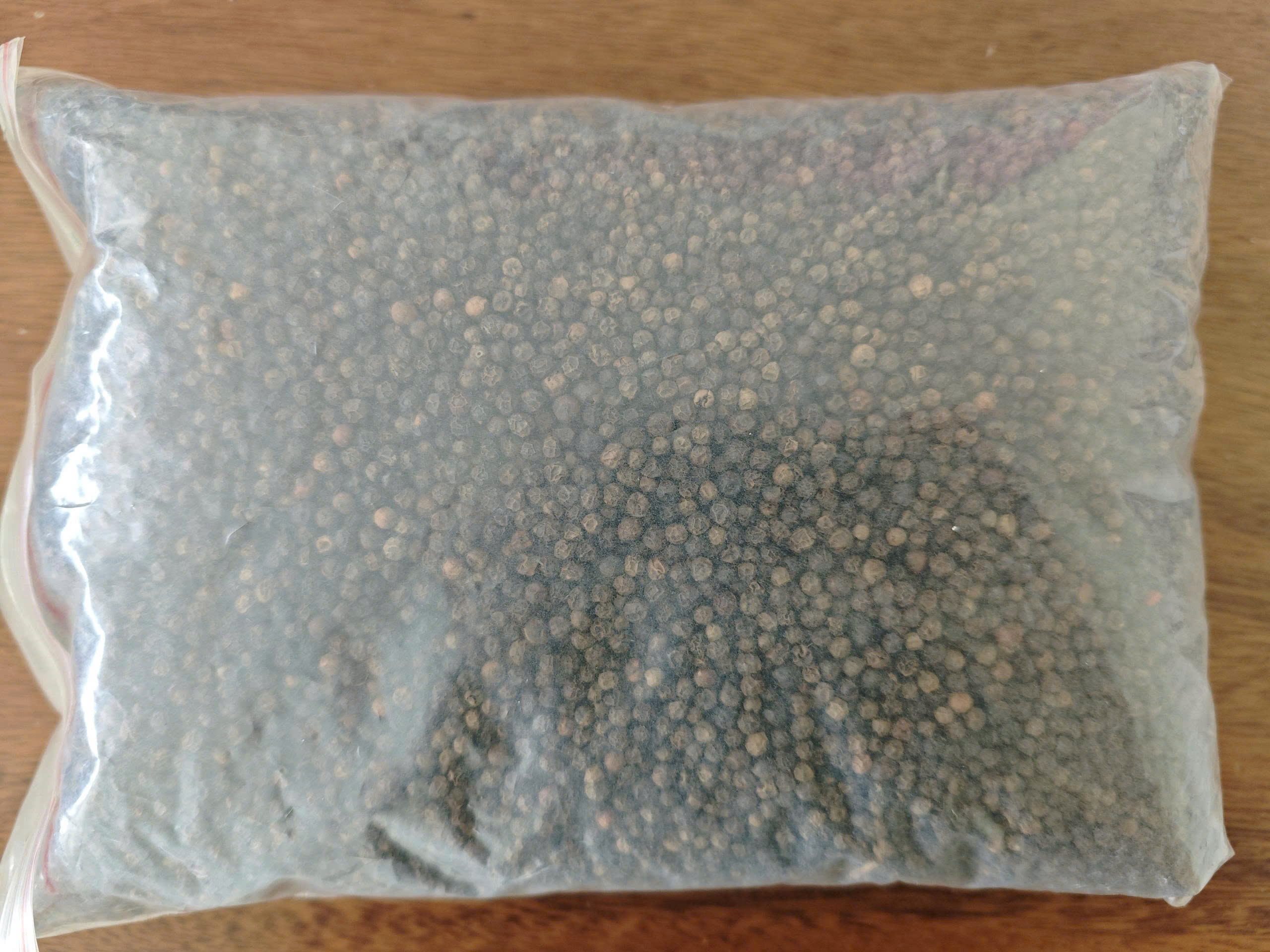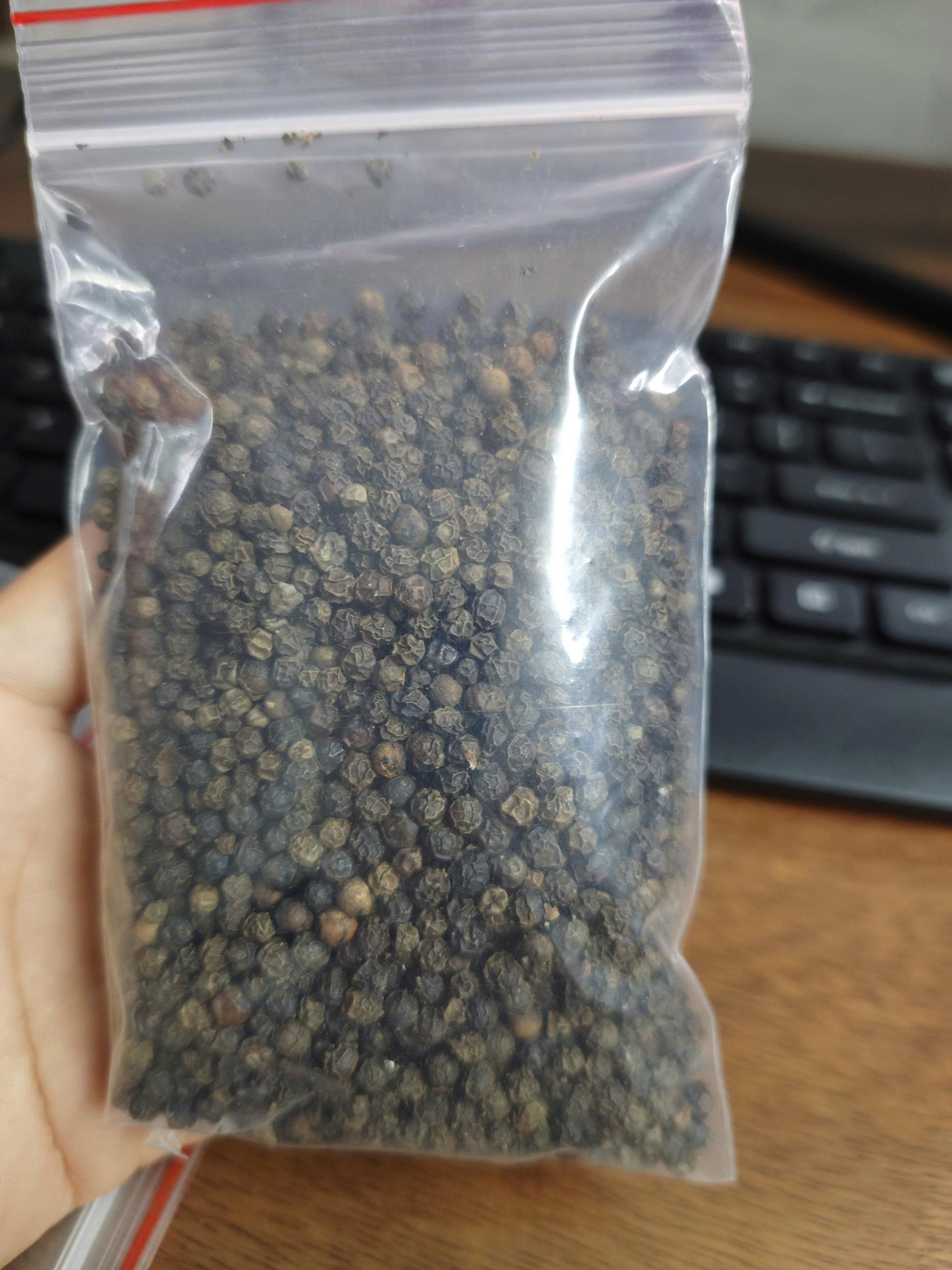
Vietnam has long been recognized as a world Black Pepper, consistently maintaining its position as the largest global producer and exporter of black pepper, accounting for over 40% of the total world output and approximately 44% of total international trade volume. Vietnamese black pepper is not merely a spice but a symbol of quality, robust flavor, and commitment to international standards.
Vietnamese black pepper is primarily grown in the fertile red basalt soil regions of the Central Highlands (Dak Lak, Gia Lai) and the Southeast (Binh Phuoc), where the perfect climate conditions result in pungent peppercorns with a high essential oil content.
1. Superior Quality: Distinct Pungency and Aroma
The allure of Vietnamese black pepper lies in its unique combination of pungency and complex aroma, winning over top chefs and food processors worldwide.
- High Piperine Content: Vietnamese black pepper is famous for its strong natural heat, thanks to its superior Piperine content, the main factor that determines the spice’s pungency and value.
- Refined Aroma: The peppercorns are hand-harvested at optimal ripeness, then properly sun-dried or mechanically dried, fully preserving their natural fragrance and setting them apart from competitors.
- Phu Quoc Specialty: Certain specialized growing areas, such as Phu Quoc Island, produce pepper with a unique flavor and aroma, highly sought after for premium segments.

2. Product Diversification and Export Applications
The Vietnamese pepper processing industry offers a wide range of products, meeting all international market requirements:
- Black Pepper Whole: Graded by density and size (500 G/L, 550 G/L, 570 G/L) to meet various quality standards.
- Ground Black Pepper: Produced in modern processing facilities, ensuring uniform fineness and strict hygiene and food safety quality.
- White Pepper: Pepper that has been soaked and stripped of its outer husk, retaining the core for a milder heat and suitability for dishes requiring a lighter color.
- Dried Green and Pink Pepper: Niche products catering to the special demands of the high-end culinary market.
3. International Quality Standards and Traceability
The credibility of Vietnamese black pepper is built upon strict adherence to global trade and quality regulations.
- International Certifications: Leading Vietnamese export companies commit to products achieving certifications such as HACCP, ISO, BRC, HALAL, KOSHER and complying with food safety regulations like the FDA (U.S.).
- Maximum Residue Limits (MRLs): Vietnam is focusing on implementing sustainable farming models (VietGAP), strictly controlling chemical residues to meet the stringent MRL standards of the EU, U.S., and Japan.
- Sustainable Supply Chain: Many companies promote transparency and traceability from farm to port, meeting the global trend of responsible sourcing.
4. Competitive Advantage and Key Markets
With large output and competitive pricing, Vietnamese black pepper is a reliable partner for global importers.
- Main Markets: The U.S., the EU (Germany, Netherlands, France), China, and India are key importing partners. Notably, Free Trade Agreements (FTAs) with the EU provide an added competitive edge for Vietnamese pepper.
- Stable Supply Capacity: Its position as the world’s largest exporter ensures a stable, year-round supply, a crucial factor for major food processors and commodity traders.
Vietnamese Black Pepper is more than an agricultural commodity; it is a global spice brand, bringing the essence of red basalt soil and the diligence of Vietnamese farmers to kitchens around the world.
Other articles:
Other agricultural products:

